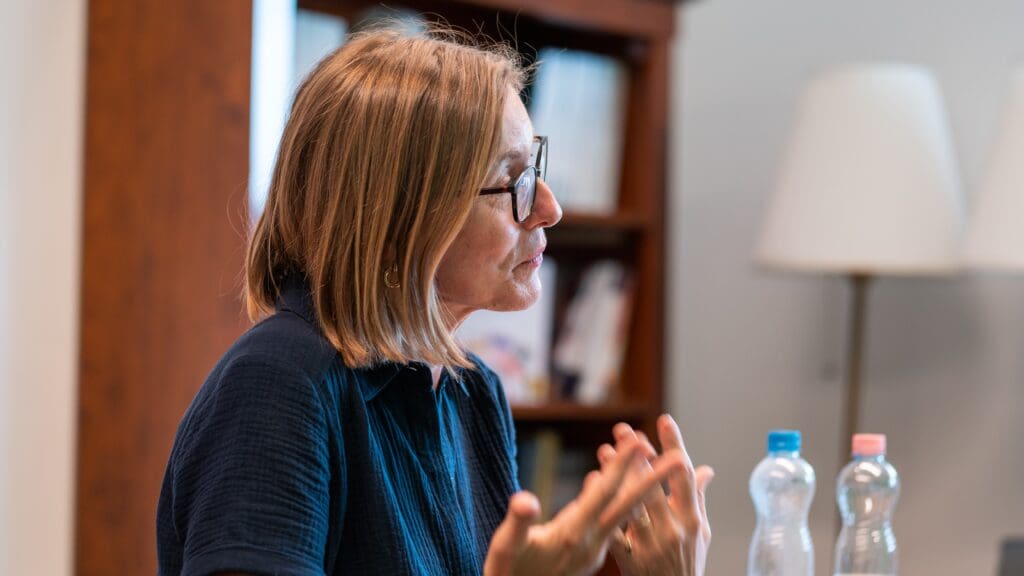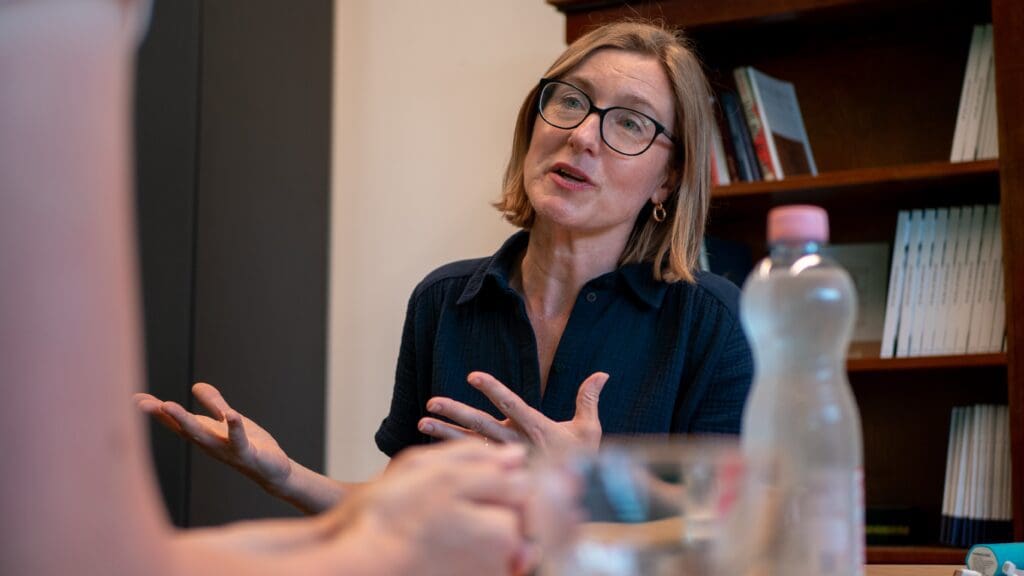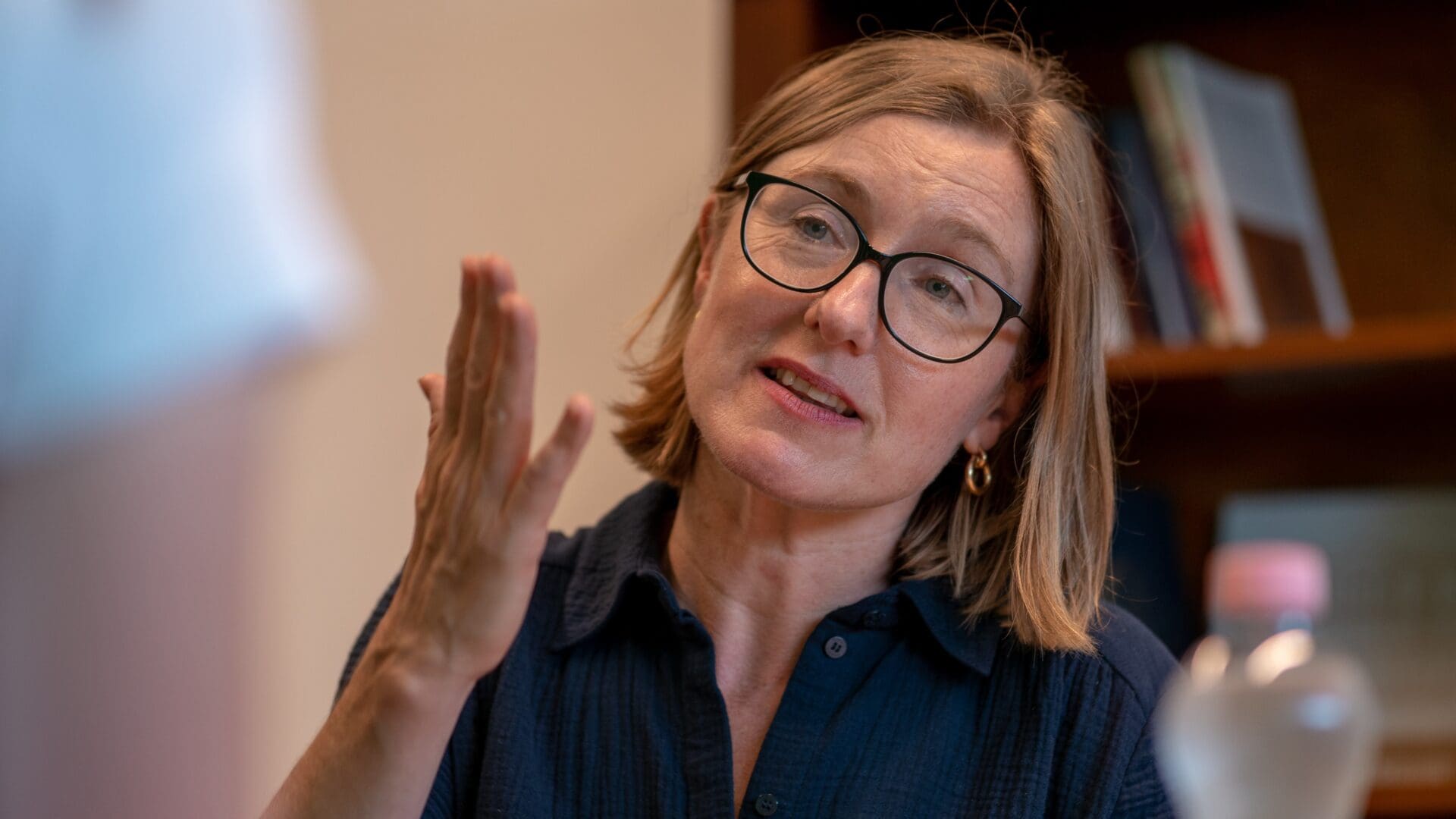Joanna Williams is the founder and director of British independent think tank Cieo. She is also a weekly columnist for the online magazine Spiked and writes regularly for numerous other publications including The Times, The Spectator, The Telegraph and The Daily Mail. Dr Williams taught at the University of Kent for over ten years and was the director of the Centre for the Study of Higher Education at Kent. Most recently, she worked as Head of Education and Culture at Policy Exchange. Her latest book, How Woke Won was published by Spiked in May 2022. Dr Williams is also the author of Women vs Feminism (2017); Academic Freedom in an Age of Conformity (2016) and Consuming Higher Education: Why Learning Can’t Be Bought (2011).
If I am not mistaken, your talk in Ontario’s public library has been cancelled. Could you explain what happened exactly?
So I was asked to speak by the Society for Academic Freedom and Scholarship in Canada. Every year they have a lecture at the public library; they’ve done this for maybe ten years without any problems at all. And this year the manager of the library asked for the transcript of my speech in advance. The fact it was asked in advance is something that suggests that they want to put a political judgment on it. In the end, they got some links to my previous lectures. Basically, they said, arguing the controversial thing that a woman is a biological reality comes into conflict with their policies on harassment, and they worry there might be protests. So, the speech couldn’t go ahead. Part of the story is that they were hosting a comedian in the exact same venue the next day. He was a Palestinian comedian who as part of his act apparently makes jokes about Israelis being killed. And the Jewish community in Ontario said, why was I not allowed to speak for fear of upsetting transgender people, while at the same time this person was allowed to speak, even though Jewish people are offended by his performance.
I think that really shows the trouble you get into when you start to censor different ideas.
Essentially if you’re in charge of a public institution—a library which is funded by taxpayers—making a decision that some political views are unacceptable and some are acceptable is really problematic. For me, free speech is the bedrock of democracy. It’s how we discuss, persuade each other, argue, and have debates. When you’re saying these ideas are not acceptable as part of the public arena it creates huge problems and limits the democratic debate.

PHOTO: Dávid Vaszkó/Hungarian Conservative
What is the current situation in Great Britain in terms of LGBT rights? Besides the legal framework, could you describe the related social trends and attitudes?
Over the course of the past 20, or 30 years, gay rights became really admitted in the United Kingdom, they are just something that has been completely taken for granted. People aren’t judged according to their sexuality, and society has become far more tolerant. At the same time, I think what happened in the last five or six years, is that now we don’t talk anymore about LGB, it’s always LGBT; you put the T for transgender always at the end of LGB. The two things are completely contradictory. As soon as you start saying that being a man or woman is just an identity and it’s not related to your sex, then you make it meaningless to have gay or lesbian rights. Actually, I think it has been a huge backward step and an attack on gay rights. Meanwhile, we had the institutionalisation of the LGBT movement.
Anyway, it’s very refreshing for me to be in Hungary,
because in the United Kingdom June is Pride Month. The LGBT flag with pink, blue, and black triangles for gender identity is just everywhere. I can’t even put into words how dominant this is. Every shop, school, bank, library, and university waves the transgender flag. I think a lot of people are beginning to lose their temper at it, as it creates a situation in which one is told what to do. What’s going on in schools is a whole different issue.
Please explain.
The problem is that it has become a huge part of the curriculum teaching about gender and relationships. It’s so far beyond the basic facts of life and biology. In the UK these classes are called relationships and sex education. It really annoys and upsets me as a mother because of the idea that there is a right and a wrong way to have a relationship, there’s a right and wrong way to relate to other people. These are the most intimate parts of human life; it is about how we exist in families and how we relate to other people. Teachers can be experts in geography, history, biology, science, and maths, but nobody is an expert in relationships. Stating how to have a relationship really infringes upon the rights of parents. I think working these things out for yourself, it’s part of being human. The idea that you get taught ‘this is how you do it’ takes away part of what makes us human.
Staying on this topic, can you identify some important social events or legal measures which can be described as turning points?
In recent history, I would say the biggest turning point in the United Kingdom was Brexit. And I don’t really mean that in terms of a relationship between Britain and the EU, but in terms of power within the UK itself. Over the previous 25 years, or even going back to 1979 with Margaret Thatcher and then Tony Blair, it really consolidated the idea that there is a professional expert class of politicians, and politics should be kept away from the people; the idea that we need experts to run the country and make decisions for us. A clash of ideas between every elite politician, academic, journalist, and commentator was pro-remain. Barack Obama came over to the UK to say everybody needs to vote for remaining. The message to vote for remaining was everywhere. And people essentially said no.
People said we will not do what you tell us to do.
Without any interpretation that the decision was right or wrong, the fact that people did something that the elites had told them not to do, became a really transformative point in UK politics. It was the first time when people realised that in the ballot box, everybody’s vote is equal and people could actually be quite powerful to tell the elite, we do not want your view of how the country should be. In the United Kingdom, the Labour Party and the Conservative Party are very similar at the moment. Everybody goes along with the importance of Net Zero and the importance of protecting the environment. We can’t really make big changes to the economy. There’s not much difference between those two parties right now. So, the idea that we want to reject being part of the EU was equivalent to rejecting the status quo entirely.
What in your view was the message of the referendum on Brexit?
That we want something completely different. And I think that gave such a shock to the elite since they realised that they weren’t as powerful and as influential as they thought they were. Unfortunately, I think through COVID and the very strict lockdown policies, the elite tried to consolidate its power and push back against the people. There was a sense of glee, in the sense of ‘you’ve got this deadly virus, now you really want experts back in charge again, don’t you?’ Going back further in history, I would emphasise the importance of 1984. That year was marked by the miners’ strike, which really lives on in the political memory of people. It was a real time of working-class strength and solidarity. The question again was who rules Britain, is it an elite or is it the masses, the working class? And sadly, I had to say, that Margaret Thatcher was in charge that the working class was completely smashed. From a left-wing perspective, that was the point at which they really began to turn to identity politics and really began to give up politics that rely on the working class as a powerful political force. They turned to groups like gay people, black people, and transgender people, and that was the first point when they looked at how they could do politics through these different identity groups. So those would be the two most important historical turning points.

PHOTO: Dávid Vaszkó/Hungarian Conservative
How do you define woke? Is it just a way of thinking or a new political paradigm?
I would define woke as a way of understanding and making sense of the world and society. It is an elite top-down way of understanding and it’s based on a lot of things, like dividing people up on the basis of their identity, whether that’s their skin colour, their sexuality, or their gender. According to it, people are ranked in a hierarchy with the perception that some groups are oppressed and some groups are privileged. Woke people believe that just a few people are in positions of power, who are able to somehow transform and shake up the world to give people they consider to be oppressed more power and to take power away from the people whom they consider to be privileged. In Britain, it has become a very powerful and dominant approach at the moment.
In what ways?
Woke become the main way institutions relate to the public. The civil service, education, health service, even the private sector, businesses, and corporations. This is absolutely the dominant way of making sense of the world and understanding society. It’s important that woke completely does away in its understanding of society with any social class. It gives a lot of power to the cultural elite who essentially appropriate the victimhood of the oppressed people and claim to be acting on behalf of them. In practice, we have diversity training programmes in workplaces, where you are expected to listen to people talking about white privilege and the importance of respecting gender and declaring your pronouns. And it becomes the way people are expected to relate to one another in workplaces. Woke is very dominant, very elitist, and very anti-democratic because it isn’t a kind of bottom-up view. Woke is a kind of top-down imposition on families, an attack on families, on communities, on neighbourhoods, on all kinds of natural bonds of solidarity that people would have with one another.
What are your impressions of Hungary? Does Hungary have a chance to break this LGBT agenda?
First of all, I absolutely love it here. I love Budapest and what I really want to change in the next year is that I haven’t been outside of Budapest. Some things that I love particularly are how beautiful it is, and how buildings have been renovated and modernised with real sympathy and respect for the past. In your statues, in your monuments, and in your architecture there’s a kind of a desire not to forget the past, but to acknowledge it with all the good and bad parts. The streets are kind of a living feature you walk on and the past becomes part of your life. It lifts your soul and makes you feel invigorated.
In terms of a political project, I do look to Hungary as an inspiration and I hope it can serve as an example.
We have a big question in Britain: why did the United Kingdom become so woke and has all these backward ideas when we have had a conservative government for 13 years? The people wanted one way of life, and in fact, it has been given the opposite. The only decisive answer is that the government has had quite little power because of the Civil Service, the universities, publishing, newspapers, the BBC television, and all of these cultural institutions in society that are actually very, very powerful. The government does something on the one hand, but on the other hand, people who put the ideas into practice are not going to do that.
During the interview, you spoke highly of Hungary several times. What do you think makes Hungary exceptional?
What is very interesting in Hungary is the way the government takes it seriously enough to face up to the whole scale of the challenges. It’s not enough just to sit in parliament and make policies, you have to make sure that you can influence the cultural institutions as well. If you don’t try to shape the cultural institutions, you’re failing to take responsibility to do what people really want you to do. Actually, it is anti-democratic that the people voted for a particular government and you let the cultural institutions just run up in a different direction. So, I’m really positive about what’s happening here and also hope that it could serve as an example other countries could emulate.
Related articles:








